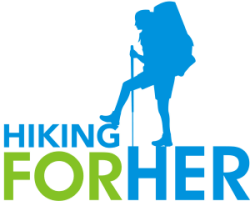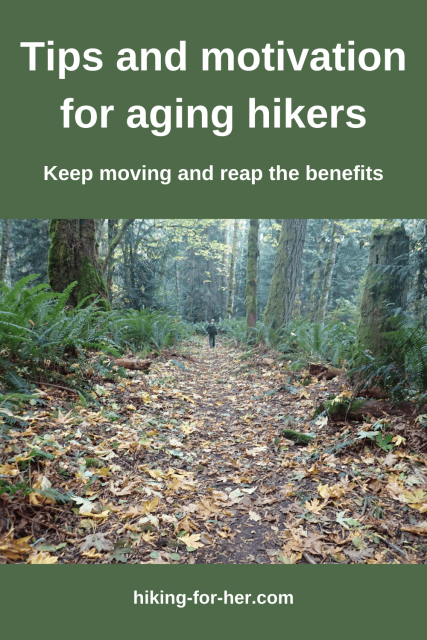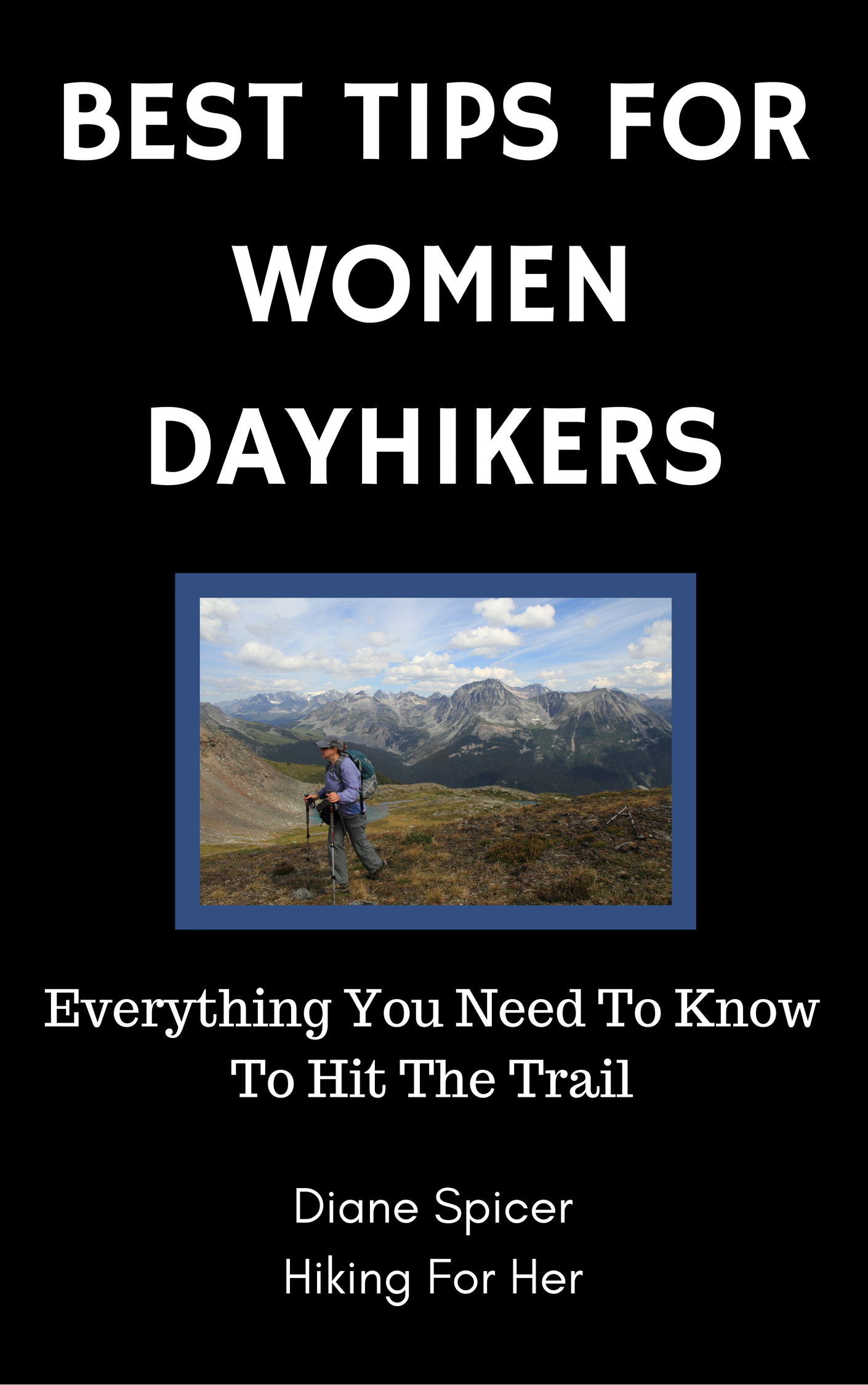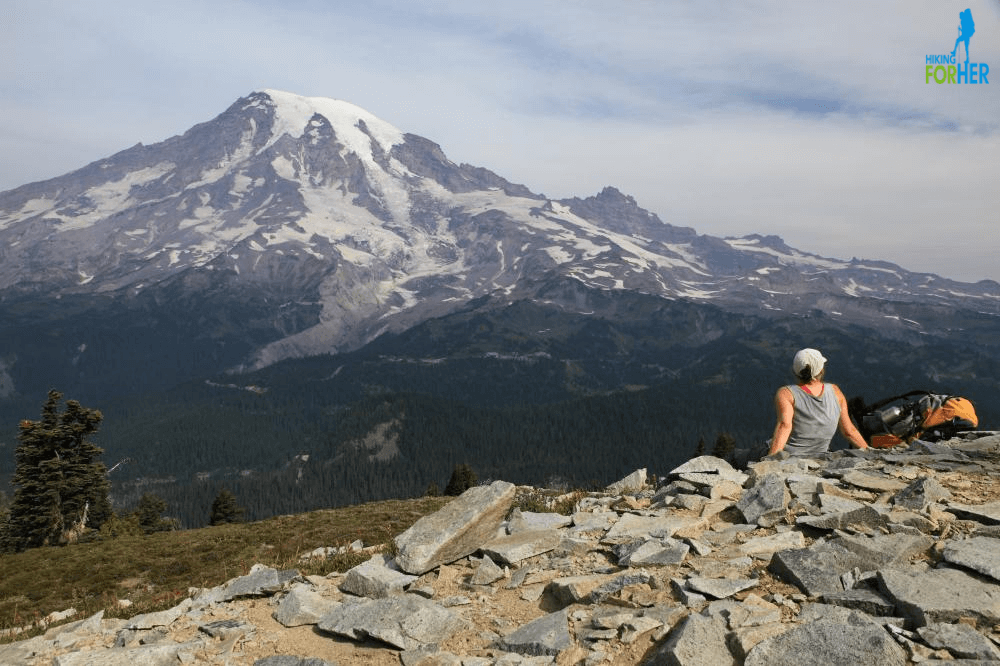Aging Hikers Need To Know
A Few New Tricks
By Diane Spicer
Aging hikers.
Doesn't that describe all of us, really?
Each day passes and leaves us one day older.
So define "aging" as any age you'd like: 30, 45, 60...
If you're here, let's dive into some tips and tricks to make your hiker's body keep going no matter your age in years.
Aging hikers
face inevitability
As we age, gracefully or not, we all face many changes in our trail hardened bodies.
We deal with them, or ignore them, according to our personality.
Some are physical challenges to be overcome or managed:
Others have to do with our changing digestion, endurance and motivation:
And there are inevitable changes correlated with aging, but which can be slowed down by simply doing the thing we love (you did say hiking, right?)
Did you guess that it would be related to your muscles?
Let's take a closer look.
Aging hikers
and skeletal muscle loss
I'm talking about loss of skeletal muscle mass over time, the types of muscle fibers that give you stamina and power on the trail.
Have you ever seen the cells which are responsible for getting you out and back again?
- Take a peek at this microscopic glimpse of skeletal muscle and fat (adipose) cells.
Notice how there's a cozy relationship between the skeletal muscle cells (also called "fibers") and the fat cells.
That has to do with their distinct jobs.
Skeletal muscle cells will shorten or lengthen, depending upon what you are doing on the hiking trail:
- lifting your foot,
- stretching to reach an overhanging ripe juicy berry,
- or pulling a long stretch of uphill hiking.

Fat jumps in here
Fat cells store hiking energy, and will release that energy when given the correct chemical signals.
Who needs the energy?
You guessed it, the neighboring muscle cells...
which translates into the energy you rely upon when you're hiking.
This is all well and good in a young, active hiker's body.
But if that hiker stops hiking and passes the 30 year mark give or take), the skeletal muscle cells begin to be replaced by fat cells (and some non functional, ropey connective tissue).
Will ex-hikers notice this trend?
You bet!
Muscle tone decreases, so they begin to look and feel flabby.
They notice a lack of endurance if they have to walk very far.
Reflexes may slow down.
And the numbers on the bathroom scale are creeping upward, as the heavy fat is replacing the leaner muscle.
What does research say?
The news from the research world is good for aging hikers, as well as anyone else living in a human body.
Anyone who moves that body, that is!
For example, exercise and cardiovascular health was explored in this article in the journal Circulation.
Quick summary for you,
with editorial comments
for aging hikers
- Midlife increases in physical activity are associated with decreased mortality. (So start hiking, or keep hiking!).
- Regular exercise promotes weight reduction, can reduce LDL levels (the "bad" cholesterol), and raise levels of HDL (the good guys).
- If you hit the trail, you can not only reduce your body weight but reduce your blood pressure.
- If you're diabetic and start or continue to hike, it can lead to increased insulin sensitivity (meaning your body will use insulin better to control "blood sugar" levels).
- Muscular function and strength improves (see above). Maybe say goodbye to back aches and other aches and pains?
- Muscles and bones hang out together, so improvements in bone health are also possible.
- Decreased fatigue in daily life, due to an improvement in aerobic capacity (your cells will use oxygen more efficiently).
All of these benefits are yours for the "price" of a sturdy pair of shoes/boots and a public hiking trail.
How to slow down
aging as a hiker
To slow down the unwanted conversion of muscle into fat as an aging hiker, stay active!
- Keep hiking at your regular pace, but perhaps increase your distance on each hike.
- Work out every other day: a step aerobics class, swimming or dancing, biking, yoga, gardening.
- Get down on the floor and do some crunches to break up your TV viewing habits. A solid core translates into less back pain on the trail.
- Try a low cost class: dance, skate, swim, yoga - anything aerobic to give your major muscle groups a new challenge.
- Go
for hour(s) long walks on days when you can't hike or work out. Dog
walking gives your upper body something to do along with your legs. And
look for some hills to make it more demanding.
- Do some
moderate weight training. Start with a few pounds in each hand, and work
up to 8 or 10 pound weights. This will definitely make putting on a
heavy pack much easier!
In other words, every day give your body plenty of excuses to burn some of that stored energy (i.e. fat) and keep your skeletal muscle cells plentiful.
Even fifteen minutes of movement will help you stay limber and strong.
Read what other women
have to say about aging
Aging for women is given a distinct "odor" in American society.
- The odor of decay and loss, fragility and ugliness.
Which images and words come to mind when you think of "old" women?
- hag
- LOL (little old lady)
- old bat
- biddy
- old bag
Here's a book which puts a positive spin on aging for women.

Good news
for (mature) aging hikers!
Bottom line for hikers over the age of 30:
Endurance and strength training can reverse,
or at least slow down,
loss of muscle performance associated with aging.
And that is truly great news!
Use it as one more motivator to get out on that trail and have a great time.
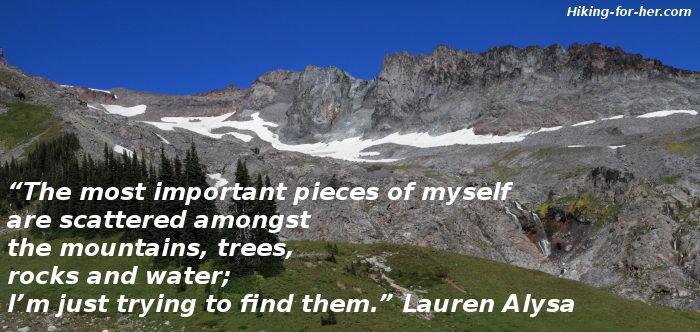
More motivational quotes found here
Additional resources
for hikers as we all age together
There's a difference between feeling old and claiming the elite title of an elder.
Some suggestions for further reading here:
Looking for an older hiker
community of women?
The online Over 40 Hiker community might be just what you're seeking.
It's a female, private group which allows us to discuss topics, exchange trail wisdom, post our triumphs and great photos, and more.
You can learn all about this community, and meet some of our members, here.
Aging Hikers
|
I get emails all the time about what I wear, eat, carry and love to use on the trail. That's
why I provide affiliate links to you: the best gear that I use myself and have seen used by other hikers is instantly
available for your consideration, and the gear company sends a few
pennies per dollar to this reader-supported hiking website. There is no added cost to you! Everyone ends up a winner: Great gear for you, strong gear companies, and more free hiking tips for everyone. Thanks very much for your support. It's warmly and sincerely appreciated. It also helps send these hiking tips to all your virtual trail buddies around the globe. |
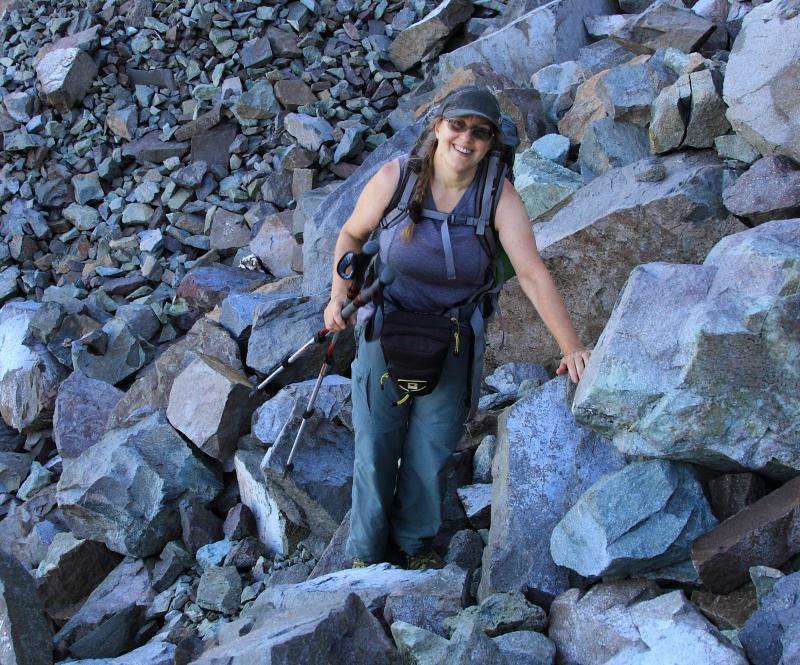 |
